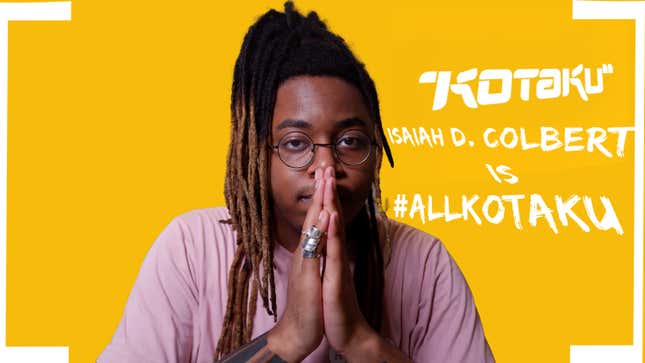
It feels like yesterday. I was in a Columbia College Chicago classroom during the “before times” of Covid-19 showing off my now-boss Patricia Hernandez’s Life Is Strange 2 article to a room full of journalism students who no doubt will be future legacy media reporters. I chose that article because it was the catalyst for my desire to write insightful pieces until I arrive at some sort of magnum opus—one that would impact readers the same way Patricia’s article did me.
Since graduating in May and writing my goodbye column for the Chronicle, I wasn’t sure if my pipe dream of breaking into the games journalism space was ever going to materialize. Droves of no-reply emails after countless nights swiping right on every job application that reared its head like I was speedrunning Tinder made me feel like I might not be needed in the space, let alone have anything worth contributing to it—even with the lowkey flex of having a whole-ass journalism degree.
Nevertheless, I found ways to flourish during that lag time, cutting my teeth freelancing at Fanbyte, writing anime articles for Sugar Gamers, and working as a contributor at GameSpot, all while playing a game of chicken with full-time job applications manifesting and the crushing reality of rent payments.
During that time, I made it a point to reach out and have fireside conversations with Janet Garcia, Keisha Howard, Kahlief Adams, Eugene Rivers II, Niki Grayson, Taylor Lyles, Renata Price, Mat Elfring and Ash Parrish. Their wisdom served me greatly not only in navigating my career, but in benefiting from their perspectives about the industry as a whole, and where there is still room for it to improve.
I’m still processing landing this position and accepting that I have managed to accomplish what I’ve been working toward for the last six years. Now here I am, a long-time lurker of the industry entering the space. It’s honestly terrifying how exciting and gratifying this feeling is.
A large part of why I decided I wanted all in with Kotaku is because I believe in Patricia’s mission to change this publication for the better.
Make no mistake, I’m trying to be the Kendrick Lamar of this space, writing nothing less than straight bangers with every article tied to my byline. But while my ego fuels me to write the greatest deconstruction of niche anime, wrestling and gaming content readers will ever perceive, my goal is bigger than that: I want a paradigm shift in how the industry writes articles.
It isn’t lost on me that the climate of games journalism is one where there’s a high probability the audience I write for won’t always be welcoming to what I have to say. I’ve seen the feedback loop of disdain readers have for gaming publications and the chip some writers have developed on their shoulders after trying to write the best work they can only to be greeted with harassment. I’m going to get ahead of whatever harassment might come my way by saying it will serve as a non-factor for me in the pursuit of what I’m trying to achieve at Kotaku.
My goal working at Kotaku is to introduce solutions journalism to the games journalism space. Oftentimes news is half reported. We get news blasts of problem-oriented articles that leave readers and writers alike feeling like the world is a fuck and none of the people in a position to combat abuses of power, workplace crunch and the plights marginalized people face in this industry are actually doing anything. But the fact is that there are people fighting to make things better. I want to cover what has too often been missing in games journalism and highlight those changemakers.
That doesn’t mean these solutions are catch-alls or that I’ll only be writing feel-good pieces. Good journalism comforts the afflicted and afflicts the comfortable and I plan to juggle both, holding people in power accountable and highlighting those in the community working towards solutions.
I believe journalists serve as a door for their readership. Not one that shuts others out but one that shows new ways of understanding and appreciating the world we live in. I want to change the outlook of readership from games journalists being cynical haters to seeing it as a position deserving of merit, because it is. I want to leave readers feeling like there’s still hope for us yet, because it’s true. This position is a privilege and I don’t intend to squander my time while I have it.
To everyone who congratulated me on this new role, I’m grateful for your support and I aim to show out to those who haven’t yet caught on to why you need to know my name.
Now I’m going to let my writing do the rest of the talking.

